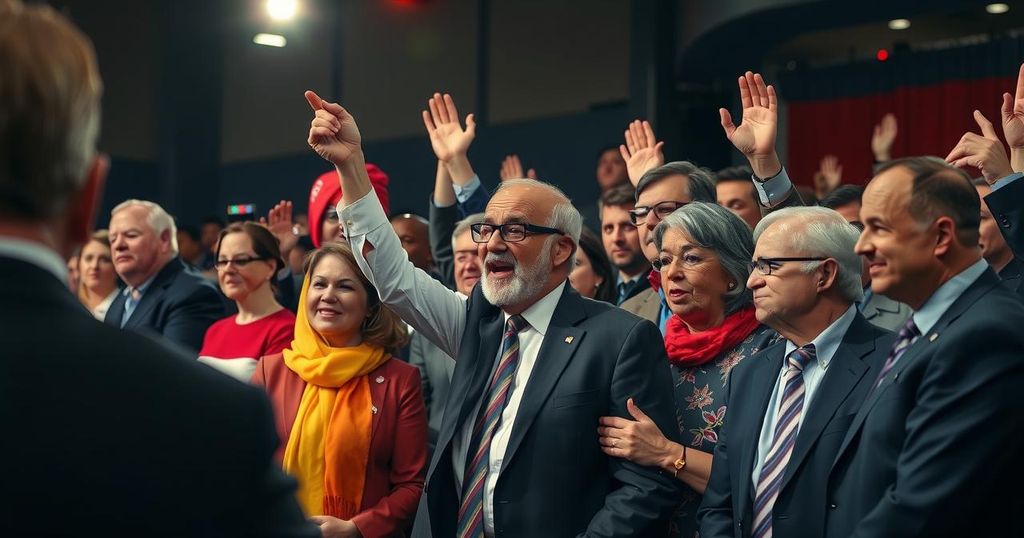Republican Gains Highlight Shifts in Voter Sentiment Post-Election

Republicans have gained a voter representation advantage post-election, with 50% of Americans viewing them favorably compared to 43% for Democrats, amid challenges for the latter following Biden’s leadership struggles. Trump’s policies and campaign efforts have resonated with diverse voter demographics, raising questions about the future of Democratic strategies.
In recent polling, Republicans have gained substantial ground among voters whom they believe best represent their interests, coinciding with President-elect Donald Trump’s leadership. According to the Pew Research Center, 50% of Americans perceive the Republican Party as adequately representing their interests, marking the highest level of approval since Trump assumed the role of party leader in 2016. Conversely, only 43% believe that Democrats are doing so, indicating a decline for the party not seen in eight years.
This shift comes on the heels of a tumultuous midterm election cycle, wherein Democrats faced significant difficulties, losing the White House, Senate, and missing opportunities to flip the House. Enthusiasm towards incumbent President Joe Biden has waned, particularly following critical debates that highlighted concerns about his age and capability, ultimately causing some voters to migrate towards Trump’s campaign. Chris Devine, an associate professor of political science at the University of Dayton, noted, “The most effective thing Donald Trump has done to convince Americans that he and his party are more in line with their interests, is to not be Joe Biden.”
Moreover, Trump’s platform has centered on economic improvement, tax cuts, and stronger immigration policies, which resonate with his Republican base. However, it should be noted that while support for Trump’s agenda is robust among Republicans, it remains less enthusiastic across the broader electorate. Despite having lost the election, Biden is critiqued for his delayed departure from the race, with various factions in the party arguing about the future direction and strategies necessary to regain voter trust and support.
As Trump prepares to assume office in January, his supporters claim a strong mandate to implement his agenda, characterized by pronounced gains among previously Democratic demographic groups such as Latino and Asian Americans. While it is argued that these electoral gains signify a mandate, there is ongoing debate regarding the implications of his victory, particularly in the context of a somewhat fragmented voter base that could easily shift again.
As the Democratic Party contemplates its future, it must address coalitional issues that have surfaced in recent elections. Devine cautions that understanding voter sentiments will require patience and observation of how the electorate responds to the outcomes of Trump’s policies. He states, “Are they happy with the results that they get? Or given how fickle Americans have been over recent elections — switching from one party to the other — are they going to stick with Donald Trump and the Republican Party, or sour on them as well?”
The article discusses the evolving political landscape in the United States, particularly following the recent election results that demonstrate a shift in public perception toward the Republican Party under Donald Trump’s leadership. The context includes their growing appeal post-election, contrasting satisfaction levels with the Democratic Party, and the strategic challenges faced by Democrats as they reassess their coalition and voter outreach efforts. This is set against the backdrop of historical voting patterns and shifts in individual demographics in response to leadership changes.
The post-election landscape indicates that Republicans have regained ground with voters, marking a significant shift in party representation perceptions, particularly in contrast to recent Democratic struggles. As Trump prepares to lead a new administration, it remains to be seen how voters will respond to his policies and whether Democrats can recalibrate their strategies to rebuild their coalition. This period will test the adaptability of both parties in addressing the evolving needs and sentiments of the electorate.
Original Source: bakersfieldnow.com







